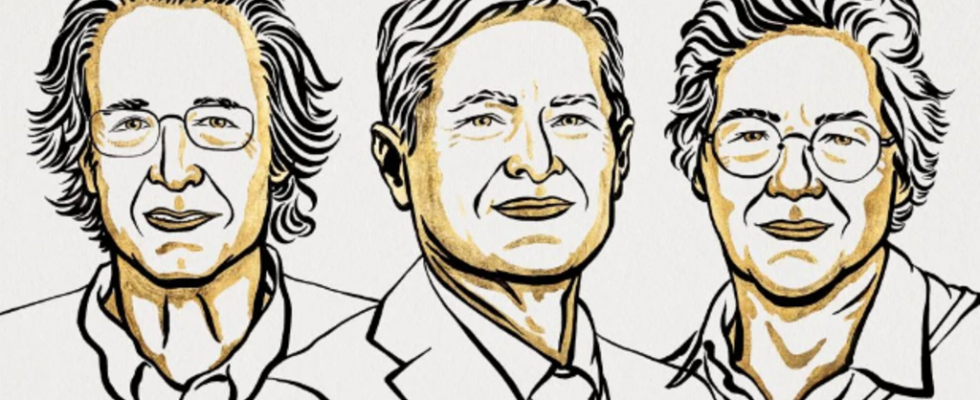This year’s Nobel Prize in Physics rewards the Frenchman Pierre Agostini, the Franco-Swedish Anne L’Huillier and the Austro-Hungarian Ferenc Krausz for work on very short laser pulses.
1 min
The three researchers’ work involves extremely short pulses of light that can be used to measure rapid processes in which electrons inside molecules move or change energy.
2023 physics laureate Pierre Agostini succeeded in producing and investigating a series of consecutive light pulses, in which each pulse lasted just 250 attoseconds. At the same time, his 2023 co-laureate Ferenc Krausz was working with another type of experiment, one that made it… pic.twitter.com/pEFAM0ErNP
— The Nobel Prize (@NobelPrize) October 3, 2023
Anne L’Huillier, online, reacted to the announcement of the prize. Very moved, she explained that her work had applications in semiconductor technology. She also declared the importance of the award for her, as a woman, and being aware of the few women winners until then.
The names of several women were circulating this year for this prize. That of the Danish Olga Botner, whose work focuses on cosmic particles, called cosmic neutrinos, or that of the American physicist Sharon Glotzer for her research on entropy, namely the degree of disorder of matter, in the assembly of this material.
Four women already Nobel Prize winners in physics
Four women have previously obtained the prestigious distinction since 1901: Marie Curie in 1903, Maria Goeppert Mayer in 1963, Donna Strickland in 2018 for discoveries on lasers and optics and Andrea Ghez on black holes in 2020.
Last year, the Swedish Academy rewarded the Frenchman Alain Aspect, the American John Clauser and the Austrian Anton Zeilinger, pioneers of the revolutionary mechanisms of quantum physics.
Monday October 2, Hungarian researcher Katalin Kariko and her American colleague Drew Weissman were awarded the Nobel Prize in Medicine for their work on messenger RNA used during vaccination against Covid-19.
Read alsoThe Nobel Prize in Medicine awarded to Katalin Kariko and Drew Weissman for their work on messenger RNA
